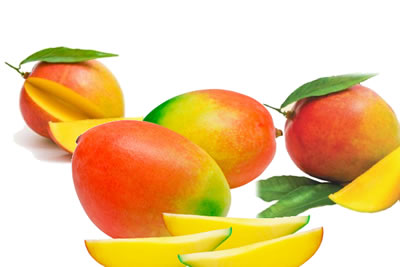African Mango (wild mango, Irvingia gabonensis) is a fruit native to Africa. Recent years, African mango has become one of the world’s most popular weight loss natural remedies.
The tree of African Mango is in the family Irvingiaceae. The fruit of Irvingia gabonensis is similar to a mango and is used for food in Africa. Irvingia gabonensis seeds are used to make medicine.
It is not easy to lose weight if you have a too good appetite. Everybody knows that reducing food intake is certainly an effective way to lose weight. But problem is that for people who have a too good appetite, they cannot eat less without feeling hungry! Many obese people find it so difficult to lose weight because they are big eaters and cannot control their stomachs. African mango is a natural appetite suppressant. It can help weight loss by suppressing appetite. African Mango has effect to moderate your appetite, making you to feel full and feel less hungry.
What can African mango do
People found that African mango lowers appetite, burns away excess fat, regulates leptin and lowers cholesterol levels. Leptin is a hormone that measures how great of an appetite you have. Studies found that African Mango can regulate Leptin levels and control your hunger.
Scientific studies have confirmed that African mango has the effects to help weight loss.
According to a study conducted in 2005, 40 obese Cameroonian patients significant decreased in body weight, total cholesterol, LDL, or “bad” cholesterol, and triglycerides after 10-week study of using African mango.
In a clinical trial published in 2009, human volunteers (overweight and/or obese) took Irvingia gabonensis 150 mg twice daily before meals, and showed that African mango extract favorably impacts body weight and a variety of parameters characteristic of the metabolic syndrome. This was the first double blind randomized placebo controlled clinical trial regarding the anti-obesity and lipid profile modulating effects of an Irvingia gabonensis extract. The positive clinical results lead to a conclusion: Irvingia gabonensis extract may prove to be a useful remedy in dealing with the emerging global epidemics of obesity, hyperlipidemia, insulin resistance, and their co-morbid conditions.
How to use African mango
Today, African mango is available in supplement market in forms of capsules and tablets. Follow the instructions about dosage and warnings on the labels of the products.
It is recommended to use African mango about 300mg daily. Take it 30-60 minutes before meals with a cup of water. Anyway, you should check the correct amount of dose and instructions before taking the supplement.
To get best result, when taking African mango extract supplements, you should also consider to have a health diet plan and a fitness plan.
Side effects of African mango
Are there any side effects of using African mango? Yes. Just like any other remedies, African mango also has side effects. But compared to other weight loss drugs made of chemicals, the side effects of African mango are moderate. It might cause flatulence, headaches, and insomnia in some people if used improperly. Before you use African mango for weight loss, you should consult your doctor.
References
- IGOB131, a novel seed extract of the West African plant Irvingia gabonensis, significantly reduces body weight and improves metabolic parameters in overweight humans in a randomized double-blind placebo controlled investigation, 2009, http://www.ncbi.nlm.nih.gov/pmc/articles/PMC2651880/
- The effect of Irvingia gabonensis seeds on body weight and blood lipids of obese subjects in Cameroon, Ngondi JL, Oben JE, Minka SR., Lipids Health Dis. 2005 May 25;4:12.



